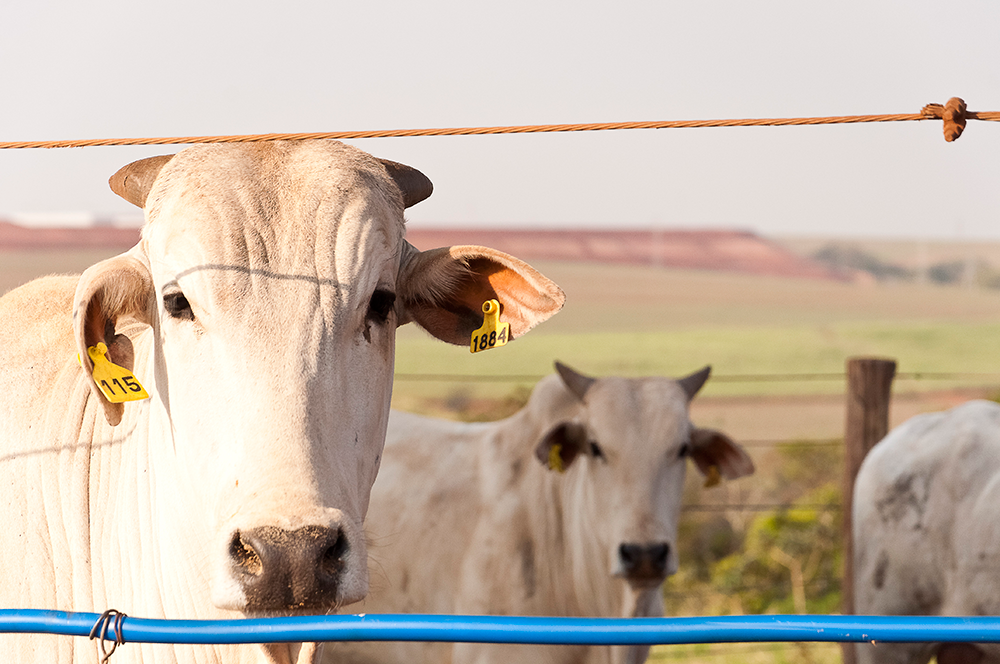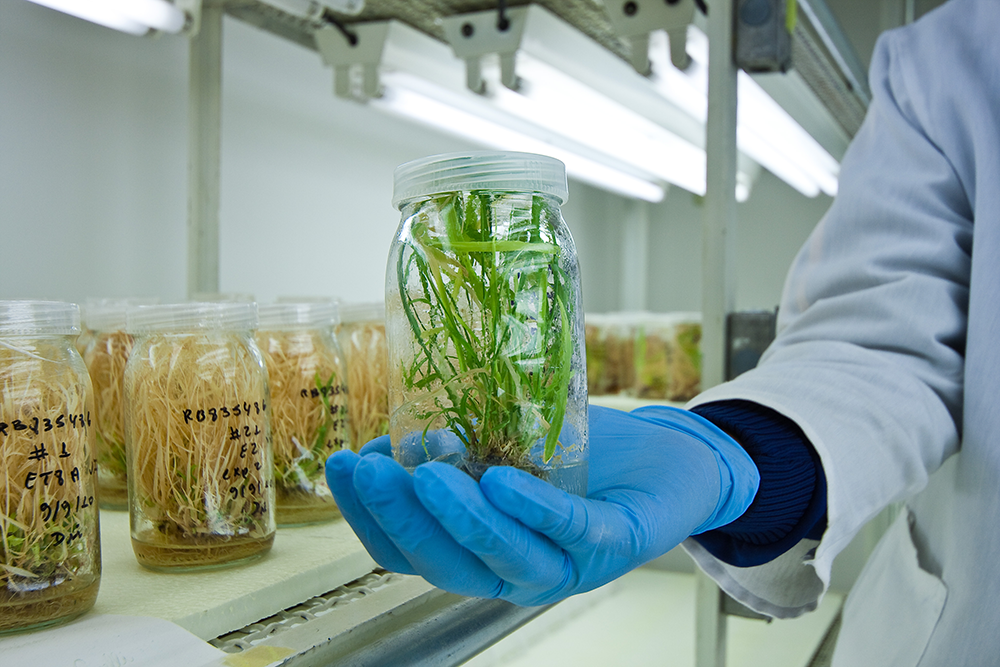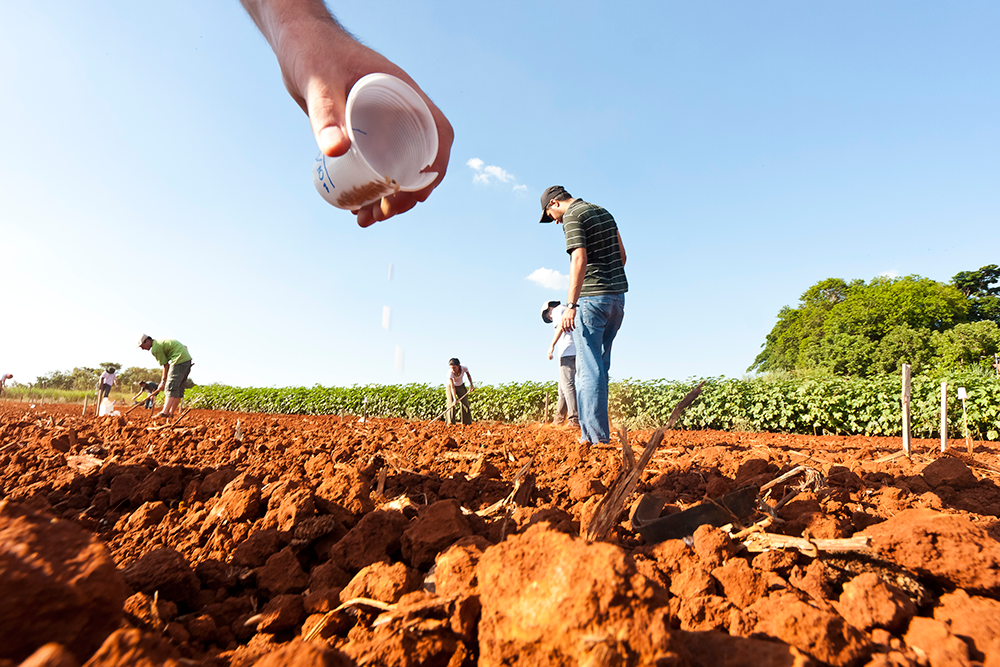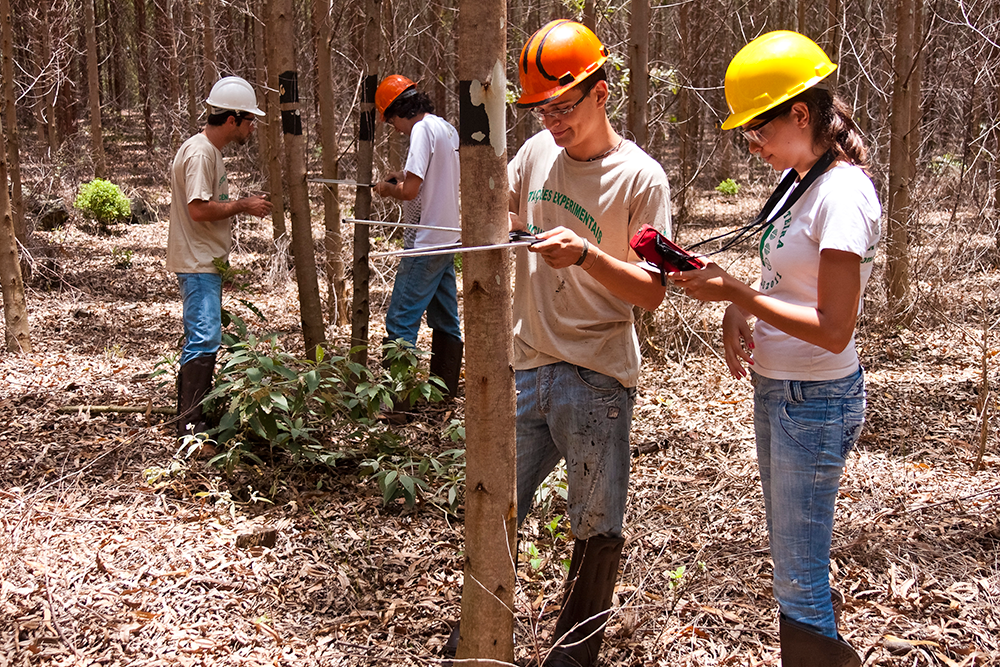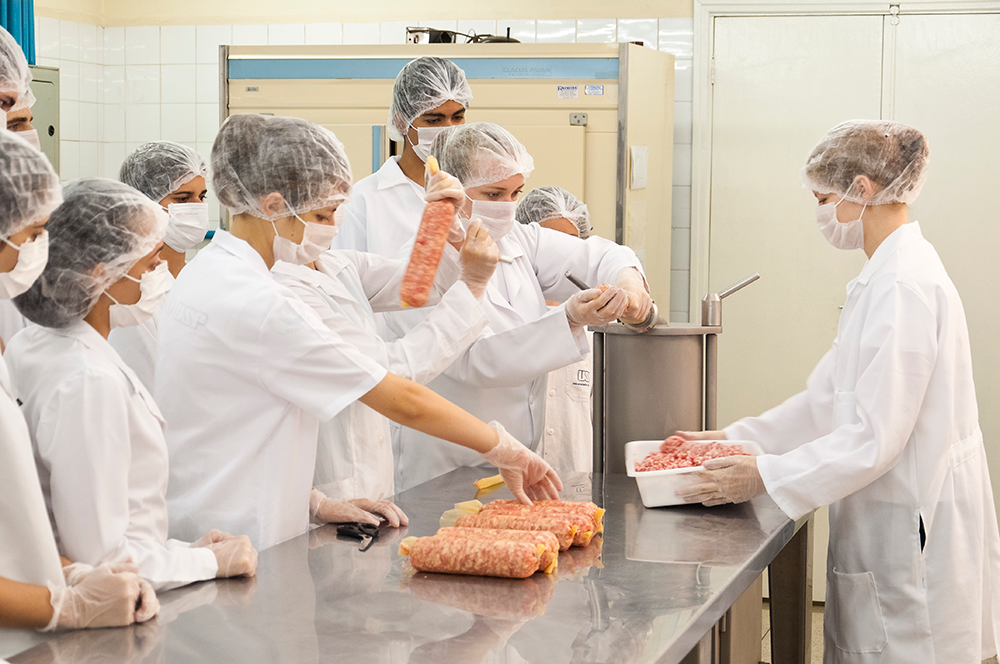
USP/ESALQ has highly qualified researchers, excellent infrastructure and cooperation agreements with other Brazilian and international institutions, playing a key role in the following areas of Agriculture research in Brazil and worldwide:
Animal Production Systems
Research in Animal Science is organized into four main areas:
- Physiology of systems and reproduction: nutritional interventions involving reproductive performance and acquisition of passive immunity.
- Breeding, biostatistics and molecular genetics: mapping and identifying genes of importance for animal production; quantitative approaches for animal breeding;
- Non-ruminant and aquaculture (swine, poultry and tropical fish) production: management and nutrition involving requirements, ingredients and additives;
- Ruminant production (dairy and beef cattle, sheep and goat) and forage production systems (grazing and forage conservation): biology and ecology of tropical grazing plants and establishment of a sustainable plant-animal-environment system;
At the end of animal production systems, focus is directed towards factors affecting the quality of milk and meat and the methodologies for their evaluation and control.
Applied Economics, Logistics, Agribusiness: trade and social aspects
These areas of research focus on the economic analysis applied to specific problems of interest either to public or private sector, especially with quantitative results bringing together theory and reality.
The research topics include: analysis of micro- and macro-economic policies; general equilibrium analysis; regional policies; social welfare; child labor; education and wage; criminality; health economics; evaluation of social programs; economic development; economics of the agribusiness sector; production economics and management; environmental and resource economics; bioenergy and sustainability; applied statistics and econometrics; agricultural derivative markets; insurance and risk management; international trade; price analysis; forestry economics; transportation and storage of agricultural bulk; logistic of perishable goods; railway; waterway and road transportation of the agribusiness bulk cargoes.
Biotechnology and Bioenergy
There are over 20 laboratory facilities developing research on plant, animal and microbial biotechnology. The main areas of studies are: molecular markers, genomics, functional genomics, transgenics, plant-pathogen interaction and biotechnology applied to bioenergy. The laboratories are equipped with DNA sequencer, mass spectroscopy, confocal and electronic microscopy, plant growth chambers and other equipment.
The Center for Bioenergy and Sustainability (NAPBS) is an institutional program that includes research in: biomass production; functional genomics, systems and synthetic biology; conversion of biomass into bioenergy (plant morphology, composition, depolymerization, enzymes, enzyme engineering); biofuels, biorefinery, biopolymers; and sustainability, environmental, social and economic impacts. Another institutional program is the Center of Cellular and Molecular Biology applied to Agriculture (NAP-BIOCEMA), which gathers scientists working in these research topics and the environment, while establishing a core facility in functional genomics.
Crop Science
Applied and basic research areas are focused on the following topics:
- Cropping systems in food (wheat, beans, rice and sorghum); fiber (cotton); coffee, cocoa and tobacco; extraction (sugarcane and rubber); and oil crops (soybean, sunflower and peanuts); fruits and vegetables, flower and landscaping;
- Seed and weed sciences;
- Irrigated agriculture and crop modeling.
Scientific topics are consistently updated with the introduction of new projects, such as in vitro genetic fruit genetic breeding; fruit, vegetable and flower post-harvesting; agricultural crops; image analysis in plants; high quality production of medicinal plants; vegetable crop production in controlled environments; environmental impact of herbicides; weed and crop herbicide resistance.
Environmental Management and Forest Resources
The environmental resources and forest management comprises research opportunities in six areas: ecology, hydrology and forest biodiversity; forestry, forest harvesting and operations; management and restoration of natural ecosystems; forest biometrics, forest economics and management; forest soils, tree nutrition and physiology; wood technology and forest products.
Food Science and Food Safety
Researches in this area cover four main fields:
- Food processing and quality: agro-industrial waste valuation; by-products and bio-based products; isolation and identification of bioactive compounds; natural antioxidants and food lipids; minimally processed vegetables and fruits; traceability of fish and seafood; conventional and non-conventional starches; food coatings; protein by-products; processed meat foods shelf-life; pre-slaughter and post-slaughter effects in meat quality;
- Food and beverages biotechnology: sugar; bioethanol; biodiesel; use of biomass from sugar cane bagasse; alcoholic beverages and spirits; ethanol fermentation process control;
- Food microbiology and good manufacturing practices: mycotoxin production control; foodborne diseases caused by bacteria; food contamination; hygiene and legislation;
- Food safety and applied nutrition: evaluation of nutritional programs; food consumption surveys; food public policies; food services; food products development; functional foods.
Further information
Click here to download our Research Booklet
e-mail: pesquisa.esalq@usp.br
Phone: +55 19 3429-4400
Picture by Gerhard Waller (USP/ESALQ - DvComun)

